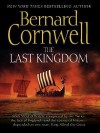Foucault's Pendulum by Umberto Eco

To begin:
Don't read this book if you want to believe.
This book started well...and then fell apart halfway through.
I didn’t care for the protagonist from the start. No, I don’t need to sympathise with a character to like a book. But in this case, I felt like I was supposed to - a little, at least - and I couldn’t bring myself to. I’m not sure how much of the protagonist is an author avatar - I hope very little or none at all. Either way, Eco portrays intellectual snobbery at its worst; impotent wrath of those who decided to dedicate themselves to obscure fields and cannot completely accept the obscurity that comes with it. Usually manifested by bitter attacks at people who fail to share their interests or perceived intellectual level.
I loved how well the makeshift theory was formed - it sounded exactly like something "a genuine occultist" would do! But then, it was played straight. I just don’t buy into the basic premise. I believe that there are secret societies, yes, but I don't think the members of them truly believe that they can gain the secret of immortality and such. I recall Tolstoy’s portrayal of masonic lodge in War and Peace - and doubtless, he had solid sources, or it wouldn’t have been in the book at all - where the ritual is there to exert psychical pressure of secrecy, yes, but the subject of matter ultimately turns to economy. Doubtless other secret societies are formed on similar basis. Therein is their true similarity to knightly orders - these, too, had members selected from certain interest groups, and were ultimately geared to expanding the lands under guise of religious enlightenment. So I daresay that even though there are probably people out there who believe in secrets of rose and cross, the creme of occult society, particularly people who interconnect rather than random lunatics with delusions of grandeur, would have known damn well that there is no map. The book seems like it mocks the conspiracy theories, but in the end, it posits just as large a one: secret society of rich and bored, linked to terrorists and exotic cults equally, that can get away with murder. From witch-hunting to Eyes Wide Shut, it’s a story that fascinates many; common citizen envies these (fictional) people who live outside the rules and share The Big Secret, and shifts the blame to them for large changes - because it has to be someone's fault, and who else but people who know but won't share? (And sexual repression of conventional society plays a big role, too, but that subject is also barely touched upon in this book.) If the finale was supposed to be absurd - liars ultimately believing their lies - it wasn't set up well at all.
As chance would have it, I am currently reading another book that mentions occult. The theory there is that “occult”, meaning hidden, was originally refferring to obscure knowledge of pagan cultures, banned by church for a while. (Curious that Eco failed to touch on the subject, considering.) However, after the advent of Age of Reason, “occult” was misused by new mystics and eventually, with the advance of science, every non-scientific belief was put under the label - hidden or not. It says more in one chapter than this book does as a whole. All right, it doesn't need to be a book about history of occult; what is its purpose anyway? I thought it was going to be an unveiling of esoterics, but it wasn't. Nor is it a very good mystery. There is a strand of philosophy somewhere in there, but it lacks point. While Eco doubtlessly has more fun facts and obscure knowledge with solid backing to throw at you, the bare bones of the plot might have as well belonged to Katherine Neville or Dan Brown.











![Volume 1 Saiyuki Ibun (ZERO-SUM Comics) [Comic] - Volume 1 Saiyuki Ibun (ZERO-SUM Comics) [Comic] -](http://booklikes.com/photo/max/50/80/upload/books/69/51/6f801b5f583ef399855e96c898261132.jpg)

